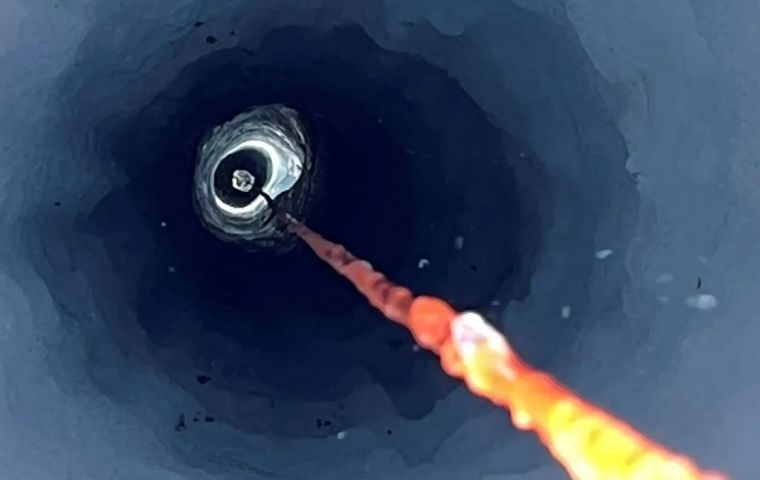MercoPress. South Atlantic News Agency
Unknown ecosystem found beneath Antarctica's ice
 “We thought something was wrong with the camera,” Niwa's Craig Stevens explained
“We thought something was wrong with the camera,” Niwa's Craig Stevens explained Scientists from New Zealand have found an ecosystem 500 meters deep hundreds of kilometers from the edge of the Ross Sea ice shelf in Antarctica, which is inhabited by shrimp-like animals, it was reported.
The researchers from the universities in Wellington, Auckland, and Otago, with assistance from the National Institute of Water and Atmosphere (Niwa) and the Institute of Geological and Nuclear Sciences, drilled through the ice shelf to make their findings, according to The Guardian.
The goal of the joint research was to determine the role of the outfall in climate change-induced melting of the ice shelf. By drilling into the ice, the camera captured the presence of small amphipods, of the same lineage as lobsters, crabs, and mites.
Niwa's Craig Stevens stated that at first “we thought something was wrong with the camera, but when the focus improved, we noticed a swarm of arthropods about 5 mm in size.”
He added the group was gripped with joy once they realized that an investigation into climate change had unearthed a new Antarctic ecosystem.
Project leader Huw Horgan from Wellington's Victoria University spotted the estuary while looking at satellite images of the Ross Ice Shelf. “Being able to observe and sample this river was like being the first to enter a hidden world,” Horgan said.
The research took place a few days after the massive eruption of the Hunga Tonga-Hunga Ha'apai volcano, so the team's instruments also recorded the pressure changes caused by the tsunami, which passed through the cavity.
“Here we are, in a forgotten corner of the world, seeing real-time influences from events that were felt worlds away,” Stevens explained.




Top Comments
Disclaimer & comment rulesCommenting for this story is now closed.
If you have a Facebook account, become a fan and comment on our Facebook Page!